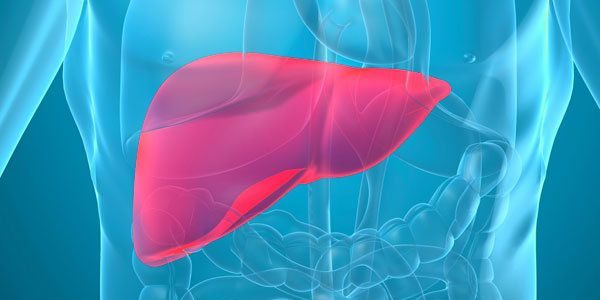Hepatorenal syndrome – treatment of disease. Symptoms and prevention of diseases of Hepatorenal syndrome

Hepatorenal syndrome – What is this disease? Hepatorenal syndrome is a symptom, characterized by the development of the fast progressing functional renal failure with dekompensirovannyh lesions of the liver, arising as a result of the decline in effective clubockova filtering. Incidence of Hepato-renal syndrome among persons, with severe liver disease, varies within 10-20%.
Hepatorenal syndrome – The cause of the
The exact causes of development of Hepato-renal syndrome is not installed. However, most commonly renal dysfunction develops against the background of the following diseases of the liver: cirrhosis with aszitom, viral hepatitis, Biliary Atresia or postponed surgery on his gall bladder disorder, Wilson's disease, Autoimmune liver disease, cancer of the liver and zhelchevyvodjashhej system, gastrointestinal bleeding, etc. There are also factors of occurrence of Hepato-renal syndrome, iatrogenic (paracentesis, prolonged intensive care non-steroidal anti-inflammatory drugs, massive dioretical therapy, etc.).
Mechanism of renal violation functions is to reduce the speed clubockova filtering due to lower blood flows (while lowering systemic blood pressure, improving vascular resistance, extending vnepochechnyh vessels and narrowing of the kidney). This increases the level of plasma Renin. An important role in the pathogenesis of this syndrome plays enhancement products vazokonstrictornah substances (jendotelinov, leukotrienes) and a decrease in the synthesis of prostaglandin of kidney, kallikreina, nitrogen oxide (natural vasodilators).
Hepatorenal syndrome – Symptoms
Clinically the syndrome manifests itself daily diureza decrease, lowering blood pressure, the formation of ascites (accumulation of fluid in the abdomen). It is accompanied by a decrease in appetite, rapid fatigue, general weakness and deterioration in the State of health in General. Symptoms may occur, characteristic of the lesion of the liver, – zheltushnost' of skin and sclera, expansion of veins on abdomen, skin rash and itching, peripheral oedema, etc.. Such a State of, usually, does not develop suddenly, and appears on the background of existing liver pathology, Although it can progress quickly enough.
Hepatorenal syndrome – Diagnostics
There were criteria, on which exhibited the diagnosis of Hepato-renal syndrome. The main ones are the presence of acute or chronic liver disease, complicated by hepatic insufficiency, accompanied by portal hypertension, increased creatinine in the serum of more than 133 mmol / l (low speed rate filtering in clubockah) or decrease clubockova filtering less than 40 mL/min during the day and more in the absence of a reception dioretikov, selection of protein in the urine of more than 500 mg / day. If this is not found a bacterial infection and signs of shock, There had been no nefrotoksicescoe treatment and there was no fluid loss, no signs of kidney disease or obstruction of the urinary tract by ultrasound. That is, primary liver. Besides, There was a reduction in the daily diureza less 500 ml, osmolarity urine exceeds plasma, sodium in the urine does not exceed 10 mmol / l, in the blood- 130 mmol / l. In the differential diagnosis with liver disease independent of kidney lesion using content criterion of erythrocytes in sight when the urinary sediment microscopy (no more 50).
Hepatorenal syndrome – Types of disease
The main criteria for the classification of Hepato-renal syndrome-occurrence rate of renal dysfunction and prognosis. So, There are two types of this syndrome:
Hepato-renal syndrome type I is characterized by the appearance in two weeks against the backdrop of alcoholic cirrhosis or acute hepatic failure, in 1 from 4 cases of spontaneous bacterial peritonitis, in 15% cases of massive and laparocenteza 10% cases of gastrointestinal bleeding. Forecast when this type of adverse (in the absence of adequate therapy death occurs within 2 weeks).
Type II is characterized by a more favourable prognosis (survival is 3-6 months) and the slower development of renal failure.
Hepatorenal syndrome – Actions of the patient
If you encounter any problems with liver or kidney disease should seek qualified help, to avoid the development of Hepato-renal syndrome.
Hepatorenal syndrome – Treatment
Treatment of this pathology, usually, conducted in the intensive care unit. The main tasks of the therapy is treatment of the underlying disease (liver pathology), fix hemodynamic violations, normalization of blood pressure (removal of hypovolemia and vasodilation). The ineffectiveness of conservative treatments may be liver transplantation. In most cases, the normalization of the liver and kidney function are restored.
Hepatorenal syndrome – Complications
The most terrible complication of Hepato-renal syndrome is lethal.
Hepatorenal syndrome – Prevention
Prevention of this disease is early detection and treatment of liver pathologies, careful application of diuretic means astite and the renunciation of the use of nefrotoksicskih drugs.
